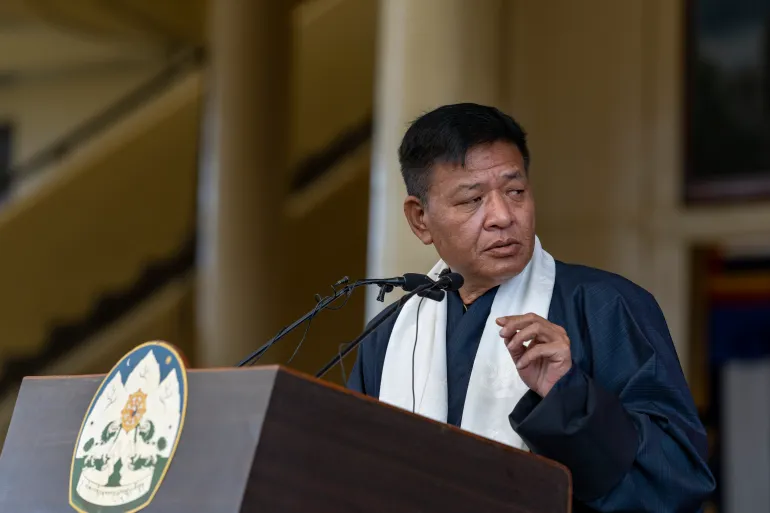Exiled Tibetan leaders and officials in the United States have condemned China’s “cruel” policies in Tibet, accusing Beijing of separating families in the Himalayan region, banning their language, and engaging in non-consensual DNA collection.
Addressing the US Congress for the first time, Penpa Tsering, the head of the India-based organisation known as Tibet’s government in exile, said on Tuesday that Tibet was dying a “slow death” under Chinese rule.
“We often get asked why we don’t hear about Tibet any more,” said Tsering, known as the Sikyong of the Central Tibetan Administration (CTA).
He blamed that silence on China’s “Orwellian gridlock system, use of all means of artificial intelligence to surveil people, control the flow of information and lockdown of Tibet to the outside world”.
“Tibetan language, religion and culture are the bedrock of Tibetan identity … These are facing the unprecedented threat of eradication,” he told the bipartisan Congressional-Executive Commission on China hearing via video link.
“If PRC [[People’s Republic of China] is not made to reverse or change its current policies, Tibet and Tibetans will definitely die a slow death,” Tsering added.
The hearing came as some Tibetan activists lament what they see as a fading focus on alleged abuses in Tibet amid growing concerns in Washington and other Western capitals about China’s expanding military, pressure on democratic Taiwan, and crackdowns in Hong Kong and on minority groups in China’s Xinjiang region.
A congressional source told the Reuters news agency that it was the first such address by a Sikyong to a congressional body, and it is likely to anger Beijing.
The Sikyong role was created in 2012 after the Dalai Lama, the Tibetans’ 87-year-old spiritual leader, relinquished political authority in favour of an organisation that could outlive him.
Beijing has accused the Dalai Lama of fomenting separatism in Tibet and it does not recognise the CTA, which represents about 100,000 exiled Tibetans living in about 30 countries including India, Nepal, Canada and the US.
China’s Embassy in Washington did not respond to a request for comment on the hearing.
China has ruled the remote western region of Tibet since 1951, after its military marched in and took control in what it calls a “peaceful liberation”. China denies wrongdoing there and says its intervention ended “backward feudal serfdom”.
Uzra Zeya, US under secretary of state for democracy and human rights, told the hearing that China continued to “wage a campaign of repression that seeks to forcibly Sinicize” the six million Tibetans in the country and eliminate Tibetan religious, cultural and linguistic heritage.
Recent reports on government-run boarding schools and involuntary mass DNA collection in Tibetan areas “shock the conscience,” said Zeya, who as special coordinator for Tibetan issues leads US support for Tibetans.
Beijing has refused to deal with her.
Republican Representative Chris Smith, who chairs the commission, said there was a global focus on Taiwan, Hong Kong and Xinjiang, but “we cannot take our eyes off the ongoing genocide being committed against Tibetan people”.
Actor and longtime Tibet activist Richard Gere told the hearing that Chinese policies in Tibet increasingly “match the definition of crimes against humanity”.
“For decades, as we know, the Chinese Communist Party’s ethnic policies have been largely predicated on containment, denial, destruction and assimilation,” said Gere, a longtime champion of Tibet who has testified in Congress several times.
The 73-year-old accused Beijing of “cruelty, collective violence and persecution” of the Tibetan people, whom he said were repressed by a “pervasive surveillance system”.
Gere called on Congress to pass legislation underscoring US support for the Tibetan people, as well as a report on Beijing’s efforts to influence the perceptions of Tibet and the Dalai Lama abroad.

